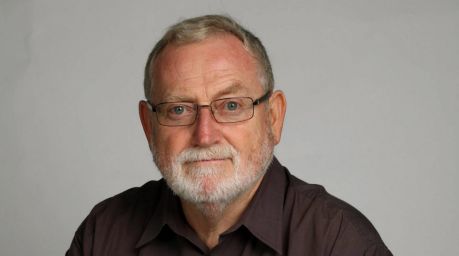
Why I'm a pathological optimist, despite my job
Last week in front of 1400 people at a Fairfax Media subscriber event I was outed as a "pathological optimist" by an anonymous reader, who wanted to know how I got that way.

Last week in front of 1400 people at a Fairfax Media subscriber event I was outed as a "pathological optimist" by an anonymous reader, who wanted to know how I got that way.

Victoria has become Australia's most divided state as the economic fortunes of Melbourne soar while those in the rest of the state crumble faster than anywhere else in the nation.

The number of incoming female chief executives in Australia remains low and has stagnated over the past year, according to a report examining tenure and makeup of CEOs by PwC.

There could be an interesting moment during Tuesday's Reserve Bank board meeting: when the members consider that the bank's forecast of year-to gross domestic product growth dropping to about 2.5 per cent has arrived nine months early.

An age-old debate was re-ignited last week, when the OECD called for higher interest rates to rein in Australia's resurgent housing market.

Australian banks are drawing a line in the sand. Interest rates on mortgages are going up – by stealth. And there will be flow on effect to the residential property market and temper the rate of growth in Sydney and Melbourne.

At least for a moment, US president-elect Donald Trump appeared to achieve this week what President Barack Obama struggled to do for most of the past eight years: convince Americans that he can fix the economy.

Sitting at home watching Netflix or playing on home electronic gadgets, eating delivered takeout food, and getting fatter? You're not alone.

The world of wages has gotten out of whack.

Conventional economics is falling apart, no longer making the sense we thought it made.

Seekers of dark linings to silver clouds are in the process of switching horses ahead of Wednesday's National Accounts Stakes, jumping off National Income Recession and climbing aboard GDP Dive.

A further slide in business investment has economic forecasters pondering the unthinkable: that the Australian economy shrank in the September quarter, and that next week’s GDP growth figure will have a minus sign in front of it.

Both sides of politics try to use a looming loss of Australia's top-notch rating to frighten the horses and blame the other for the supposed problem. But there are much larger forces at work in the world.

The rally in coal and iron ore prices won't buy Treasurer Scott Morrison more time in the eyes of S&P.;

Turnbull and Morrison are genuinely concerned about the inability of ordinary Australians to buy houses and are open to ideas.

An OPEC deal to curtail oil production and prop up global prices appeared in jeopardy as Iran said it won't make cuts while Saudi Arabia insisted Tehran must be willing to play a meaningful role in any agreement.

Lacklustre economic growth and stubbornly low inflation mean any talk of the Reserve Bank lifting interest rates next year is premature, economists say.

The ABS data published today is "the clearest sign to date that Australia's high-rise driven dwelling construction boom is starting to turn down", Westpac economist says.

The view from Paris is a lot more hawkish than that of experts on the ground here.

The OECD believes the next move in Reserve Bank interest rates will be up, sometime before the end of 2017.

Coalition voters spent up big on cars after Tony Abbott's 2013 win.

Mike Baird's weakened position won't matter for the NSW economy right away, but it will down the track.

The efficiency dividend has become a euphemism for indiscriminate compulsory redundancies.

For all the publicity Peter Dutton has generated for the coalition's tough-on-refugees, suspicious-of-Islam image, he's only added a tenuous terrorism footnote to an old story.

The 'spring-selling' season has seen a defiant return of Chinese buyers, who are sidestepping lending restrictions and found new avenues to re-enter the market.

Over the years I've dealt with all the major media owners. They were all interesting, but Kerry Packer was one apart.

Reserve Bank assistant governor Chris Kent missed a major opportunity this week. He delivered a speech about how the various states are travelling but totally omitted a key reason for the two out-performers doing so well.

The nationalist "jobs for Australians first" push by the federal government could be bad news for food lovers, given more work visas are granted to cooks and chefs than any other profession.

The concept of "two Australias" isn't new, but those of us in VicNSW are less aware of it than we were back at the peak of the mining boom when it was QldWA versus the rest.

The Reserve Bank has promoted Luci Ellis to the position of Assistant Governor (Economic), making her to first woman to become what is effectively the Bank's chief economist.

He is a scruffy 35-year-old named Moshe Hogeg.

What were the major tech trends for SMEs in 2016?
Save articles for later.
Subscribe for unlimited access to news. Login to save articles.
Return to the homepage by clicking on the site logo.